#advent 2016
Explore tagged Tumblr posts
Text


Happy 19th of DEPPcember !
(Johnny Depp) [19/31]
(Alice Through the Looking Glass) [2016]
#johnny depp#gif#gifs#johnny depp gifs#johnny depp gif#tarrant hightopp#mad hatter#alice in wonderland#alice through the looking glass#mad hatter gif#tarrant hightopp gif#advent calendar#advent gif calendar#alice through the looking glass 2016#deppcember 19#december 19th#deppcember 19th#19/31
15 notes
·
View notes
Text
i fear i have just uncovered a not-so-ancient ancient relic from my snapchat memories
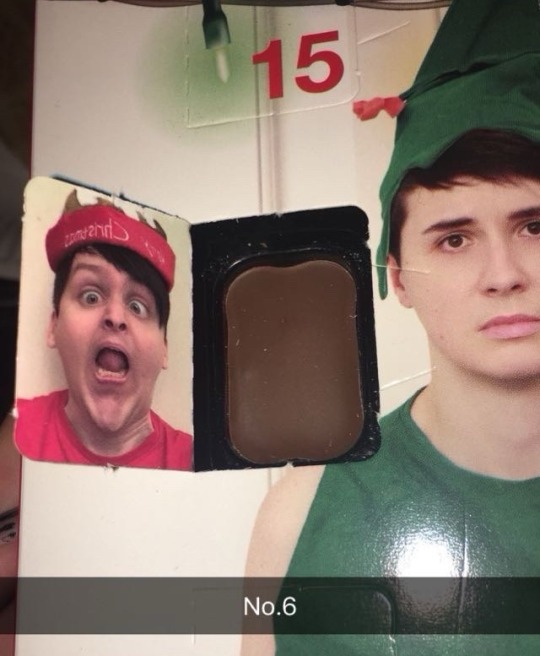
#i completely forgot that they had advent calendars#what a wild ride weve all been on with dip and pip#also this was december 2016 so its not even that old#dan and phil#daniel howell#phandom#dnp#phil lester#amazingphil
47 notes
·
View notes
Text

Been re-watching Macgyver 2016 and am falling into the Mac/Jack ship fairly hard, so here's a small snippet of pining!Jack for the December 1st Prompt: Snowed In!
~
“You know Mac, when you said let’s check out your dad’s cottage, you failed to mention that the cottage was no longer standing.” Jack said, his hands stuck in his jacket as he looked around at the clearing. There was no building in sight, the only signs that there ever existed a cottage were some old wooden floorboards and a crumbling wall.
“To be honest, this wasn’t what I was expecting either,” Mac grumbled as he bent over to check under another floorboard.
Jack kept a wary eye on Mac as he scoured the remains of his dad’s cottage and another on the snow fall. It had started off light when they left Jack’s car, Jack hadn’t even bothered to grab a pair of gloves, figuring it would stop shortly as there hadn’t been anything concerning in the weather forecast. But now there was a thick layer of snow across the ground and it was building rapidly, along with the gray, storm clouds that were covering the darkening sky.
“Look Mac, I know you were hoping to find someth-”
“Ah ha!” Mac shouted, as he unearthed a small door underneath one of the remaining floorboards. “Can you…?” his voice trailed off as he started to push away the snow from the edges of the door.
“Yeah, yeah,” Jack replied, pulling the flashlight out of his pocket and shining it down on the door, watching Mac go through the all-too-familiar steps of checking for booby-traps. Felt a bit too close to the sandbox for his liking, letting out a loud sigh when Mac finally concluded that it was safe to proceed and opened the door, only to find another box inside.
“Looks like…film?” Mac commented, shielding the contents from the rapidly falling snow. “Will have to check it out more closely once we’re indoors.”
Jack nodded enthusiastically at the idea of being indoors, feeling another shiver as the wind howled. “Not sure that my baby is going to make it anywhere in this snow though,” he mumbled, as he followed Mac back in the direction of where they left the car.
*****
Two hours of walking and five minutes of Mac pulling together a crank-operated heater, Jack and Mac were tucked in the backseat of Jack’s Pontiac, trying to get warmed back up.
Jack had already pulled out and unzipped the sleeping bag he kept in the trunk, positioning it so it covered both his and Mac’s shoulders. He had also snagged those gloves he had left behind, and shoved them on, only complaining for a minute that they were cold, as he realized that had been his own bad decision.
Mac looked equally cold, the tips of his ears bright red, his cheeks a similar matching colour, but also excited as he continued to look in the box he had found, checking along the film for any more clues.
“Come on, get in here,” Jack suggested, reaching his arm around Mac and pulling his partner in closer, hoping that the proximity would help warm them both up.
Mac groaned comically, but let Jack pull him in closer, their hips bumping as Mac shuffled closer to Jack.
Trying to ignore the other thoughts floating through his head, like how Jack wished he could have his arm around Mac like this more often, he refocused on the warmth of Mac’s leg pressed against his, and willed his body to stop shivering, but not too quickly.
No, Jack wanted this moment to last as long as it could.
6 notes
·
View notes
Text
...AND EVERY CHRISTMAS AFTER — o.so

PAIRING oh sion x fem!reader ── .✦ GENRE childhood friends to lovers, fluff, very mild angst ── .✦ WARNINGS just kissing, the most fluff i've ever written ── .✦ SYNOPSIS in which you’ve spent every christmas growing up with sion, and if you’re lucky, you’ll spend every christmas after with him too. ── .✦ A/N this is my entry for the @k-films 2024 advent calendar! ── .✦ WC 1.4k+

⋆⁺₊❅.─ 25th december 2024, 11:27am
It’s Christmas day, and the whole house is alive and in a hurry. Shouts of “mom, where’s my sweater?” and “get out! I need to use the bathroom!” fill the air, drowning out George Michael’s voice in Last Christmas as it plays from the living room speakers. Frantic relatives rush through the hallways past fairy lights and fake wreaths to get ready for the guests to arrive. It’s the first year in your life that the guests haven’t stayed over on Christmas eve.
“Y/N, can you make me hot chocolate?” shouts Sakuya from the floor above. “Why would I?” you reply to the brother in question. “I’ll do your dishes tonight.” “Deal.”
While you stir away at the two cups of hot chocolate in front of you, it becomes difficult to get your mind off the foreboding you’d felt in the pit of your stomach since waking up that day. You love your family, you really do. Winter break has been beyond fun with your cousins in town. But just this once you wish you could spend Christmas at your friend’s party instead. Just so you could avoid him. You still don’t have it in you to face him. Not after last December.
Almost as if your thoughts hold summoning powers, the doorbell rings, “Kids, come to the living room, they’re here!”
You walk out of the kitchen to face the family of your mother’s best friend, including her son: Oh Sion. The boy you hadn’t seen since new years, when you took a chance and kissed him and he didn't kiss back. The boy who stared back in disbelief after you pulled away which was more than enough to add to your mortification. The boy you’d made every effort to avoid all year.

⋆⁺₊❅.─ 24th december 2016, 7:54pm
“They’re so stupid, why would they use that door?”
“The point of the movie is that they’re stupid Sion.”
“Okay, but-”
Before the argument you’re having over Home Alone can go on any longer, your mother shushes both of you, “be quieter, everyone else is trying to watch the movie too.”
You lock eyes with Sion and then both of you turn back to your mother, “Now you’re just lying mom.”
“Yeah Mrs.L/N, it’s a kids movie, none of the adults here care. Not even you.”
“And Saku isn’t even old enough to know what’s going on.”
Your mother reopens her mouth as if to say something, but then seems to change her mind, smiling at the two of you and shaking her head. The two of you turn back to the movie as she turns to Sion’s mom, saying something about how no matter how much the pair of you bickered, you had a habit of standing up for yourselves together. If nine-year-old you cared to listen, you would have heard them say they hoped you two stayed this way forever.
It’s Christmas eve, you’re sitting next to a boy you would realise you loved 5 years later, and your mothers already think you are meant to be.

⋆⁺₊❅.─ 25th december 2024, 12:02pm
Since he got here, you had avoided eye contact, excused yourself to finish making hot chocolate, excused yourself to go to the bathroom, excused yourself to set up the lunch table. Alas, there were only so many excuses you could make before being forced to sit in the living room with everyone else. By some Christmas miracle, when you got there the only open seat was the one right next to Sion.
Sion shifted to the side, making more space for you to sit, but instead you maneuvered yourself to sit on the carpeted floor right next to the Christmas tree. You manage to get through a lot of the wait time before lunch by eating candy, drinking your hot chocolate, only speaking when asked a question (usually “yes my studies are going great” or “yes, I've started looking at a few colleges”), and most importantly by looking everywhere except at him. Yet, your mother just had to shatter your nearly flawless streak of avoidance.
“Y/N, why don’t you get some hot chocolate for Sion too?”

⋆⁺₊❅.─ 25th december 2021, 1:27am
“Shhh, they’ll hear!” you whisper-yelled at him.
“I didn’t even say anything!”
You just shook your head in response and reached over to redirect the light from the phone in his hand to the stairs in front of you, tiptoeing down, hoping the wood underfoot won’t creak. The boy next to you grabs your hand with his free one, pulling the two of you closer together than you were before. You stare at the hands and then at his face.
Sion leans to reach your ear to whisper, “I thought I heard something from upstairs.”
All you do is nod in response and continue carefully making your way down. Sion’s face stays close to yours, his hand continues to envelope your own.
You reach the entrance to the kitchen at the bottom of the stairs, turning on its lights. Sion takes his hand off yours, coughing awkwardly as he moves away and turns off his phone's flashlight. You head to the shelf in the furthest corner, getting on your toes in an attempt to reach the cookies right at the top. Sion approaches from behind leaning over you to reach the cookies easily. The gesture and the proximity make your fourteen-year-old heart flutter.
He takes a seat on the floor, placing the cookies down, just as you do the same with the cola you pulled out of the fridge.
“I can’t imagine a Christmas without you. Or uh- you know. Without all of this,” he says quietly.
“Me neither,” you respond, just as quietly.
It’s Christmas day, you’re sitting on your kitchen floor with a boy, and you’re beginning to realise you may not just have a silly crush on him. You might just be in love.

⋆⁺₊❅.─ 25th december 2024, 12:27pm
The kitchen has always been just out of earshot of the main living room area. The voices of both of your families fade into the background as the two of you walk in, the rapid beating of your heart becoming louder by the second and filling your ears. You start making the hot chocolate as he leans on the counter next to you, trying (and failing) to meet your eyes.
“You’ve been avoiding me. Not just today, all year. Since new year’s.”
“I don’t really want to talk about new year’s.”
“Hm?” he hums with a questioning tone.
You stop stirring, finally meeting his eyes, “It was just- you know. A mistake. Drank a little too much. Won’t happen again.”
“We only had one beer each that night. I know your tolerance is higher than that. And I’d like it to happen again.”
There’s a pause. You process what he’s just said to you. Sion can tell by the look on your face that the cogs are turning in your head and a smirk begins to form on his face.
“Oh.”
He nods, then after another pause you continue, “But you didn’t kiss back.”
“Because I was surprised! You’ve got to give a guy a second to figure out what’s going on before you assume the worst,” he shakes his head in mock disappointment while he smiles at your stunned expression, “I was surprised you liked me back.”
“You liked me?” “I might actually be in love with you.”
“Oh,” your voice now reduced to a whisper out of shock, “I might be in love with you too.”
Now your body turns to face him fully, just as his hand moves to your cheek. He leans down, his lips meeting yours as your hands go to his sides, grabbing his sweater. You’ve kissed people before but with Sion it’s different (especially when he kisses back). You pull apart for breath, “Ok now this is our first kiss, the new year's one doesn't count.” You laugh in response, “Deal.”
Sion engulfs you in a hug, the warm kind he’s always given you. His arms wrap around your waist as yours encircle his neck. As you hug the two of you confess how much you missed each other all year. When the hug breaks he kisses you again and you can feel the smile on his lips.
All of a sudden your attention is brought back to your previous task, realising the hot chocolate must be getting cold. Sion watches you with adoration in his eyes as you turn back to the counter to finish stirring. The adoration has always been there, you’re just beginning to notice it.
It’s christmas day, you’re standing in your kitchen with the boy you love, and you finally know he loves you just the same. You’re excited for new years day, and every christmas after, because each one will be spent with him.

© 2024 FAE-RENJUN. All Rights Reserved. Do not copy or steal any of my posts. networks: @kstrucknet
#✩⋆⁺₊ k-films — advent calendar#k-labels#blossomnet#chrimata#ncity-net#kstrucknet#sion x reader#oh sion x reader#sion#oh sion#nct wish#nct wish x reader#nct x reader#sion fluff#sion angst#nct fluff#nct#nct fanfic#riku#yushi#jaehee#ryo#sakuya#nct imagines#ᝰ.ᐟ ―tia writes#ᝰ.ᐟ ―oneshot
271 notes
·
View notes
Text
The reason people were saying don’t forget fandom history isn’t because anyone thinks Stucky is the oldest MLM ship, or the biggest MLM ship, or the only MLM ship of its time. It’s because it was 2014 and gay marriage was still illegal. It’s because it was 2015 and MAGA was flying everywhere. It’s because it was 2016, people took to Twitter and trended #givecapaboyfriend. Mere weeks later, comics Steve Rogers was written into a Nazi.
It’s because it came at a turning point not just in superhero history but American history. MCU Steve Rogers was a return to a more sincere worldview after two decades of grim dark cynicism. The MCU, previously the domain of (mainly cis white) dudebros — you only have to look at the way Nat and Peggy were written in the early movies to know that women and other minorities, whether as characters or audience, were a distant afterthought — has gained traction with the mainstream audience. The advent of social media and internet accessibility meant a blossoming abundance of fan content that previous generations didn’t have.
This coincided with a time of intense ideological clash between progressive and conservative voices. Unlike what dudebros say, very few people believed the MCU would actually give Cap a boyfriend, but it did squarely place Captain America on the side of the LGBT community. Up until this point, MCU Steve in both canon and fanon has often been portrayed with hazy nostalgia for “the greatest generation” and the white picket fence dream. The hashtag trend was a reclamation of a character who was written by a minority, whose origin was a marginalised group for his time, and whose moral code was always supportive of people sidelined by history.
There will always be older ships, bigger ships, “more canon” ships, but you’ll never get another ship that rode the nexus of social media growth, genre popularity, LGBT recognition and political tug-o-war to breach containment the way Steve-Bucky did.
Don’t forget the history of #GiveCapABoyfriend, the BBC Steve-Bucky fan video, the “of course it’s a love story”, the “we went a little Brokeback” and the “Bucky is his home”. All of these were acknowledgement of the sheer size and international reach of the fandom. With a character many people thought of as the face of conservative America, it brought gay romance into the mainstream consciousness…and yes, without Steve-Bucky and several other concurrent massive MLM ships laying down the ground work, many of the newer canon gay romances would not have been green lit by profit-hungry studios.
1K notes
·
View notes
Text
About the entanglement of "science" and Empire. About how children are encouraged participate in these imperial "scripts".
Was thinking about this recent thing:
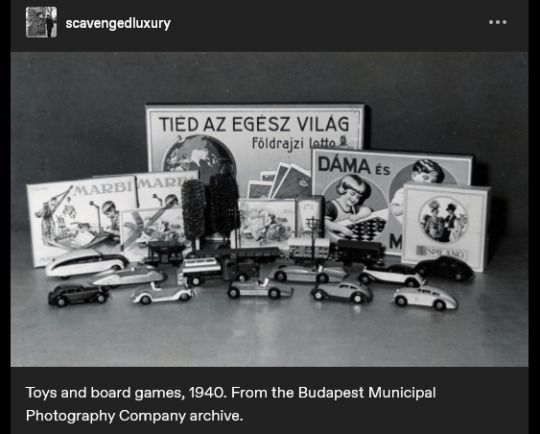
The caption reads: "Toys and board games, 1940." And I think the text on the game-box in the back says something like "the whole world is yours", maybe? (Use of appeals to science/progress in imperial narratives is a thing already well-known, especially for those familiar with Victorian era, Edwardian era, Gilded Age, early twentieth century, etc., in US and Europe.)
And was struck, because I had also recently gone looking through other posts about the often-strange imagery of children's material in late nineteenth- and early twentieth-century US/Europe. And was disturbed/intrigued by this thing:
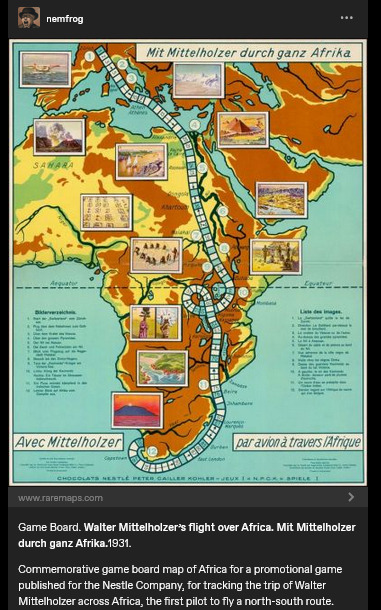
Caption here reads: "Game Board. Walter Mittelholzer's flight over Africa. [...] 1931. Commemorative game board map of Africa for a promotional game published for the N*stle Company, for tracking the trip of Walter Mittelholzer across Africa, the first pilot to fly a north-south route."
Hmm.
I went to learn more about this: Produced in Switzerland. "Africa is for your consumption and pleasure. Brought to you by the N#stle Company!" (See the name-dropping of N#stle at the bottom of the board.) A company which, in the preceding decade, had shifted focus to expand its cacao production (which would be dependent on tropical plantations). Adventure, excitement, knowledge, science, engineering prowess, etc. For kids! (In 1896, Switzerland had hosted a "human zoo" at the Swiss Second National Exhibition in Geneva, where the "Village Noir" exhibit put living people on display; they were over two hundred people from Senegal, who lived in a "mock village" in Geneva's central square.)
Another, from a couple decades earlier, this time English-language.
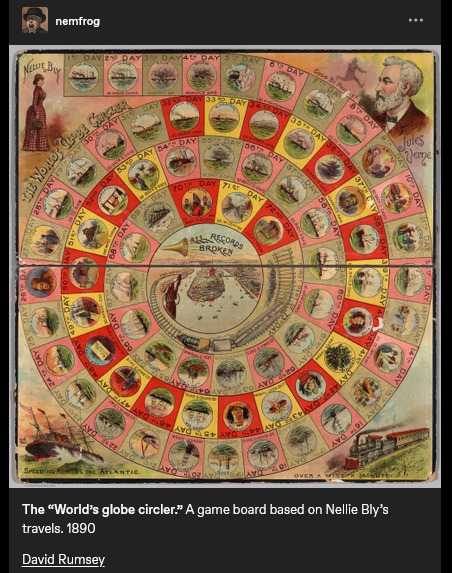
Caption reads: "The "World's globe circler." A game board based on Nellie Bly's travels. 1890." At center, a trumpet, and a proclamation: "ALL RECORDS BROKEN".
Went to find more info: Lithographed game board produced in New York. Images on the board also show Jules Verne; Bly, in real-world travels, was attempting to emulate the journey of the character Phileas Fogg in Verne's Around the World in Eighty Days (1872).
Game produced in the same year that the United States "closed the frontier" and conquered "the Wild West" (the massacre at Wounded Knee happened in December 1890). A couple years later, the US annexed Hawai'i; by decade's end, the US military was in both Cuba and the Philippines. The Scramble for Africa was taking place. At the time, Britain especially already had a culture of "travel writing" or "travel fiction" or whatever we want to call it, wherein domestic residents of the metropole back home could read about travel, tourism, expeditions, adventures, etc. on the peripheries of the Empire. Concurrent with the advent of popular novels, magazines, mass-market print media, etc. Intrepid explorers rescuing Indigenous peoples from their own backwardness. Many tales of exotic allure set in South Asia. Heroic white hunters taking down scary tigers. Elegant Englishwomen sipping tea in the shade of an umbrella, giggling at the elephants, the local customs, the strange sights. Orientalism, tropicality, othering, paternalism, etc.
I'd lately been looking at a lot of work on race/racism in British scientific and pop-sci literature involving natural history or geographical imaginaries. (From scholars like Varun Sharma, Rohan Deb Roy, Ezra Rashkow, Jonathan Saha, Pratik Chakrabarti.) But I'd also lately been looking at Mashid Mayar's work, which I think closely suits this kinda thing with the board games. Some of her publications:
"From Tools to Toys: American Dissected Maps and Geographic Knowledge at the Turn of the Twentieth Century". In: Knowledge Landscapes North America, edited by Kloeckner et al., 2016.
"What on Earth! Slated Globes, School Geography and Imperial Pedagogy". European Journal of American Studies 16, number 3, Summer 2020.
Citizens and Rulers of the World: The American Child and the Cartographic Pedagogies of Empire, 2022.
Discussing her book, Mayar was interviewed by LA Review of Books in 2022. She says:
[Quote.] Growing up at the turn of the 20th century, for many American children, also meant learning to view the world through the lens of "home geography." [...] [T]hey inevitably responded to the transnational whims of an empire that had stretched its dominion across the globe [recent forays into Panama, Cuba, Hawai'i, the Philippines] [...]. [W]hite, well-to-do, literate American children [...] learned how to identify and imagine “homes” on the map of the world. [...] [T]he cognitive maps children developed, to which we have access through the scant archival records they left behind (i.e., geographical puzzles they designed and printed in juvenile periodicals) [...] mixed nativism and the logic of colonization with playful, appropriative scalar confusion, and an intimate, often unquestioned sense of belonging to the global expanse of an empire [...]. Dissected maps - that is, maps mounted on cardboard or wood and then cut into smaller pieces that children were to put back together - are a generative example of the ways imperial pedagogy [...] found its place outside formal education, in children's lives outside the classroom. [...] [W]ell before having been adopted as playthings in the United States, dissected maps had been designed to entertain and teach the children of King George III about the global spatial affairs of the British Empire. […] [J]uvenile periodicals of the time printed child-made geographical puzzles [...]. [I]t was their assumption that "(un)charted," non-American spaces (both inside and outside the national borders) sought legibility as potential homes, [...] and that, if they did not do so, they were bound to recede into ruin/"savagery," meaning that it would become the colonizers' responsibility/burden to "restore" them [...]. [E]mpires learn from and owe to childhood in their attempts at survival and growth over generations [...]. [These] "multigenerational power constellations" [...] survived, by making accessible pedagogical scripts that children of the white and wealthy could learn from and appropriate as times changed [...]. [End quote.] Source: Words of Mashid Mayar, as transcribed in an interviewed conducted and published by M. Buna. "Children's Maps of the American Empire: A Conversation with Mashid Mayar". LA Review of Books. 11 July 2022.
Some other stuff I'd recently put in a to-read list, specifically about European (especially German) geographical imaginaries of globe-as-playground:
The Play World: Toys, Texts, and the Transatlantic German Childhood (Patricia Anne Simpson, 2020) /// "19th-Century Board Game Offers a Tour of the German Colonies" (Sarah Zabrodski, 2016) /// Advertising Empire: Race and Visual Culture in Imperial Germany (David Ciarlo, 2011) /// Learning Empire: Globalization and the German Quest for World Status, 1875-1919 (Erik Grimmer-Solem, 2019) /// “Ruling Africa: Science as Sovereignty in the German Colonial Empire and Its Aftermath” (Andrew Zimmerman. In: German Colonialism in a Global Age, 2014) /// "Exotic Education: Writing Empire for German Boys and Girls, 1884-1914". (Jeffrey Bowersox. In: German Colonialism and National Identity, 2017) /// Raising Germans in the Age of Empire: Youth and Colonial Culture, 1871-1914 (Jeff Bowersox, 2013) /// "[Translation:] (Educating Modernism: A Trade-Specific Portrait of the German Toy Industry in the Developing Mass-Market Society)" (Heike Hoffmann, PhD dissertation, Tubingen, 2000) /// Home and Harem: Nature, Gender, Empire, and the Cultures of Travel (Inderpal Grewal, 1996) /// "'Le rix d'Indochine' at the French Table: Representation of Food, Race and the Vietnamese in a Colonial-Era Board Game" (Elizabeth Collins, 2021) /// "The Beast in a Box: Playing with Empire in Early Nineteenth-Century Britain" (Romita Ray, 2006) /// Playing Oppression: The Legacy of Conquest and Empire in Colonialist Board Games (Mary Flanagan and Mikael Jakobsson, 2023)
#mashid mayar book is useful also the Playing Oppression book is open access online if you want#in her article on slated globes mayar also mentions how european maps by 1890s provoked a sort of replete homogenous filling in of globe#where european metropole thought of itself as having sufficiently mapped the planet by now knit into neat web of interimperial trade#and so european apparent knowledge of globe provided apparently enlightened position of educating or subjugating the masses#whereas US at time was more interested in remapping at their discretion#a thing which relates to what we were talking about in posts earlier today where elizabeth deloughrey describes twentieth century US#and its aerial photographic and satellite perspectives especially of Oceania and Pacific as if it now understood the totality of the planet#ecologies#tidalectics#geographic imaginaries#mashid mayar#indigenous pedagogies#black methodologies#tigers and elephans#victorian and edwardian popular culture#my writing i guess
142 notes
·
View notes
Text
[“Women have outnumbered men as psychiatric patients since the mid-nineteenth century and, as Ussher (2011: 1) states, they have been, “more likely to receive psychiatric ‘treatment,’ ranging from hospitalisation in asylum, accompanied by restraint, electro-convulsive therapy (ECT) and psychosurgery, to psychological therapy and psychotropic drug treatments today.” The history of the psy-professions’ pathologisation and abuse of women for being women is deeply disturbing and should shame even the most ardent supporters of the mental health experts. In the name of science and progress, the mental health system has sought to control almost all aspects of women’s experiences, emotions, and behaviour through physical and moral interventions. Chesler (2005: 218) notes, for example, that many women were incarcerated in asylums for making claims of sexual abuse against their family, mothering “illegitimate” children, or for “suspected lesbianism.” Further, Masson (1986) compiled a collection of highly authoritative psychiatric articles on women from the nineteenth century to vividly demonstrate that acts of physical constraint, rape, torture, and female castration by the profession were all justified as appropriate (if not mandatory) treatment for women who questioned or defied their place in Victorian society. The discussion in this chapter, however, is concerned specifically with explaining the central reasons for previous female oppression by the psy-professions as well as the continuation and expansion in neoliberal society of what Ehrenreich and English (2011) have called the “sexist ideology” of medical professionals. As none of the mental disorders in the DSM with which women have been labelled have validity (Chap. 1), psychiatric interventions cannot be argued to be concerned with the care and treatment of any real distress that women may experience. Instead, we need to understand such institutional interventions within the broader context of structural gender inequalities in capitalist society. As Penfold and Walker (1983: vi) have summated, “[p]sychiatry is an institution in a society in which women are oppressed [and it] plays a specific role in that oppression.” A critical understanding of psychiatry’s focus on women, gender roles, and deviance can only be fully understood through a thorough assessment of the structural determinants of the division of labour in capitalist society which has devalued female roles and confined women to the status of second-class citizens. This analysis necessitates an investigation of patriarchal forms of domination and the intersectionality with the relations of production—something that has concerned a host of critical feminist scholars since the advent of second wave feminism in the late 1960s.
My argument here is that while an examination of the psychiatric profession clearly demonstrates that it continues to be an institution of patriarchal power, the distinctive form that structures this oppression is determined by the needs of capital (such as the requirement for paid and unpaid labour, the reproduction of the labour force, the necessity to suppress working-class resistance, and the normalisation of gender roles in industrial society as “natural,” equitable, and common sense). Thus, the critical analysis outlined here follows in the spirit of Donna Haraway (1978: 25) who has succinctly argued that “[t]he biosocial sciences have not simply been sexist mirrors of our own social world. They have also been tools in the reproduction of that world, both in supplying legitimating ideologies and in enhancing material power.”]
bruce m.z. cohen, from psychiatric hegemony: a marxist theory of mental illness, 2016
57 notes
·
View notes
Text
Okay this obviously is very awful but also this is levels of insane video game villain I didn't think was possible:
Reports that a powerful Rio drug lord known for his extremist religious beliefs ordered Catholic churches near his stronghold to close have spooked worshipers and security experts and exposed the advent of a “narco-pentecostal” movement made up of heavily armed evangelical drug traffickers. Claims emerged in the Brazilian press over the weekend that Álvaro Malaquias Santa Rosa – a notorious gang boss known as Peixão (Big Fish) – had determined that three places of worship should shut down in and around the agglomeration of favelas that he controls in northern Rio. Since Peixão – whose nickname comes from the ichthys “Jesus” fish – took power in 2016 of five favelas that have become known as the Complexo de Israel, an allusion to the evangelical belief that the return of Jews to the Holy Land is a step towards the second coming of Christ and Armageddon. A neon Star of David has been erected at the top of the complex and at night can be seen for miles around – an unmissable symbol of Peixão’s force and his faith. The roofs of the favelas’ redbrick houses are dotted with blue and white Israel flags demarcating the territory the gangster controls.
"Narco-Pentecostal Evangelicalism" is not a phrase that should exist outside of a final boss in a Bioshock sequel, credit to Brazil for upping the stakes here - I guess I shouldn't be surprised given their track record like having a culture of US Confederacy escapees trucking along today.
69 notes
·
View notes
Text
so it turns out you gotta sign up to make a movie list quiz on that site everyones using? sure would have been nice to know before i spent like, 3 hours racking my brain trying to think of every movie ive seen. so i just copied the list i made there and will paste it under the cut below
1 2001: A Space Odyssey (1968) 2 A Clockwork Orange (1971) 3 Soylent Green (1973) 4 Logan's Run (1976) 5 Star Wars (1977) 6 Alien (1979) 7 Star Trek: The Motion Picture (1979) 8 The Empire Strikes Back (1980) 9 Escape From New York (1981) 10 Heavy Metal (1981) 11 Mobile Suit Gundam I (1981) 12 Mobile Suit Gundam II: Soldiers of Sorrow (1981) 13 Star Trek II: The Wrath of Khan (1982) 14 Blade Runner (1982) 15 Mobile Suit Gundam III: Encounters in Space (1982) 16 Return of the Jedi (1983) 17 Nausicaä of the Valley of the Wind (1984) 18 2010 (1984) 19 Dune (1984) 20 Star Trek III: The Search for Spock (1984) 21 The Terminator (1984) 22 Back to the Future (1985) 23 The Quiet Earth (1985) 24 Star Trek IV: The Voyage Home (1986) 25 Predator (1987) 26 Akira (1988) 27 They Live (1988) 28 Back to the Future Part II (1989) 29 Star Trek V: The Final Frontier (1989) 30 Bill & Ted's Excellent Adventure (1989) 31 Back to the Future Part III (1990) 32 Edward Scissorhands (1990) 33 Slacker (1991) 34 Bill & Ted's Bogus Journey (1991) 35 Star Trek VI: The Undiscovered Country (1991) 36 Terminator 2: Judgment Day (1991) 37 Braindead (1992) 38 Star Trek: Generations (1994) 39 Stargate (1994) 40 Goldeneye (1995) 41 Ghost in the Shell (1995) 42 Mars Attacks! (1996) 43 Star Trek: First Contact (1996) 44 Independence Day (1996) 45 Tomorrow Never Dies (1997) 46 The Fifth Element (1997) 47 The End of Evangelion (1997) 48 Contact (1997) 49 Men in Black (1997) 50 Dark City (1998) 51 The Truman Show (1998) 52 Godzilla (1998) 53 The Faculty (1998) 54 Spriggan (1998) 55 Star Wars: Episode I - The Phantom Menace (1999) 56 The World Is Not Enough (1999) 57 The Matrix (1999) 58 The Iron Giant (1999) 59 Bicentennial Man (1999) 60 Titan A.E. (2000) 61 Battlefield Earth (2000) 62 X-Men (2000) 63 Waking Life (2001) 64 Evolution (2001) 65 Final Fantasy: The Spirits Within (2001) 66 Cowboy Bebop: The Movie (2001) 67 Donnie Darko (2001) 68 28 Days Later (2002) 69 Reign of Fire (2002) 70 Men in Black II (2002) 71 Spider-Man (2002) 72 Signs (2002) 73 Resident Evil (2002) 74 Die Another Day (2002) 75 Lilo & Stitch (2002) 76 Star Trek: Nemesis (2002) 77 Star Wars: Episode II - Attack of the Clones (2002) 78 The Matrix Reloaded (2003) 79 The Matrix Revolutions (2003) 80 Freddy vs. Jason (2003) 81 The Animatrix (2003) 82 School of Rock (2003) 83 X2 (2003) 84 Hulk (2003) 85 The Day After Tomorrow (2004) 86 The Butterfly Effect (2004) 87 I, Robot (2004) 88 Eternal Sunshine of the Spotless Mind (2004) 89 Spider-Man 2 (2004) 90 The Hitchhiker's Guide to the Galaxy (2005) 91 War of the Worlds (2005) 92 Final Fantasy VII: Advent Children (2005) 93 Star Wars: Episode III - Revenge of the Sith (2005) 94 Click (2006) 95 A Scanner Darkly (2006) 96 V for Vendetta (2005) 97 I Am Legend (2007) 98 28 Weeks Later (2007) 99 Spider-Man 3 (2007) 100 Quarantine (2008) 101 District 9 (2009) 102 Watchmen (2009) 103 9 (2009) 104 Star Trek (2009) 105 Inception (2010) 106 Attack the Block (2011) 107 Prometheus (2012) 108 Her (2013) 109 Snowpiercer (2013) 110 Star Trek Into Darkness (2013) 111 Pacific Rim (2013) 112 Ender's Game (2013) 113 Interstellar (2014) 114 The Giver (2014) 115 Mad Max: Fury Road (2015) 116 Star Wars: The Force Awakens (2015) 117 Ex Machina (2015) 118 Arrival (2016) 119 Rogue One: A Star Wars Story (2016) 120 Star Wars: The Last Jedi (2017) 121 Blade Runner 2049 (2017) 122 Level 16 123 Solo: A Star Wars Story (2018) 124 Dune (2021) 125 The Matrix Resurrections (2021) 126 Everything Everywhere All at Once (2022) 127 Godzilla Minus One (2023)
16 notes
·
View notes
Text



FROM THE ARCHIVES: JUST LIKE RIDING A BIKE Press photos of Julie Andrews, aged 12, at the family home, the Old Meuse, in Walton-on-Thames, 25 October 1947
In 1947, fresh from her star-making turn in Starlight Roof, 12-year-old Julie Andrews was widely feted in the British press as a singing child phenomenon. Her nightly performance of the difficult coloratura showpiece “Polonaise” from Mignon — complete with florid runs, agile cadenzas, and a stratospheric F above top C — left audiences stunned and critics reaching for superlatives. The press dubbed her everything from the “Prima Donna in Pigtails” and "Infant Prodigy of Trills" to “Britain’s Youngest Singing Star” (Farmer, 2022, p. 136).
At the same time, media profiles anchored her emerging child star image in the normalising discourse of British domesticity. Articles reassured readers that, behind the exceptional talent, Julie was a simple English girl at heart — one who loved dogs and horses, read the Bible nightly, and helped with household chores (Farmer, 2022, p. 139). This emphasis on ordinariness helped temper potential unease around juvenile prodigiousness, casting Julie not as a precocious oddity but as a national 'every child'.
Publicity photographs of the time brought this ideological narrative to life. They routinely staged the young star in scenes of wholesome suburban girlhood at her family home in Walton-on-Thames: playing with dolls, doing homework by the fireside, and, as in the images featured here, riding her bicycle. These bicycle portraits were among the most widely reproduced of Andrews’s early publicity stills. Even Dame Julie herself later selected one of these images for inclusion in her memoir Home (Andrews, 2008). The appeal is not hard to discern. Despite its unassuming simplicity, the image of a child riding a bicycle is rich with cultural symbolism.
Since its advent in the nineteenth century, the bicycle has carried a complex and evolving social status — shaped by Romantic ideals of bucolic freedom and therapeutic health, as well as modernist associations with progress and egalitarianism (Oosterhuis, 2016). In post-war Britain, it became a potent emblem of both practicality and aspiration: a tool of everyday mobility and a marker of youthful independence, health, and middle-class stability. Amid the material constraints of post-war reconstruction, the bicycle remained an affordable, and valued mode of transport, linked to thrift, duty, and discipline. At the same time, the rise of car culture redefined the bicycle as a vehicle of childhood and leisure — often a prized Christmas or birthday gift — increasingly associated with juvenile innocence, adventure, and coming-of-age (Withers & Shea, 2016).
These networks of cultural meaning find poignant expression in the shoot’s main photograph, where Julie rides mid-motion across the gravel drive of her family home, her right arm raised in a cheerful wave, a wide smile lighting her face. The carefree gesture and easy poise suggest spontaneous joy and expressive action. Yet every detail is carefully curated: her hair neatly plaited, her wool jumper tucked in, her tartan skirt pressed just so. With ankle socks and polished bar shoes completing the look, she embodies an idealised vision of post-war British girlhood.
The image thus frames the young star as both an extraordinary child soprano and an everyday schoolgirl, pedalling through the quiet certainties of suburban petit bourgeois respectability. That duality — between prodigious talent and reassuring normalcy — was precisely what made the young Julie Andrews so captivating in the public imagination of post-war Britain.
Sources:
Andrews, J. (2008). Home: A memoir of my early years. Weidenfeld & Nicolson.
Farmer, B. (2022). ‘Prima donna in pigtails’: Reading the child stardom of Julie Andrews. Celebrity Studies, 14(2), 131–145. https://doi.org/10.1080/19392397.2022.2038531
Oosterhuis, H. (2016). Cycling, modernity and national culture. Social History, 41(3), 233–248. https://doi.org/10.1080/03071022.2016.1180897
Withers, J., & Shea, D. P. (2016). Culture on two wheels: The bicycle in literature and film. University of Nebraska Press.
© 2025, Brett Farmer. All Rights Reserved.
14 notes
·
View notes
Note
why do non swifties, and hell, often haters are against gaylors and insist taylor could NEVER be lgbt? "she said she's straight" no she hasn't, you wouldn't know that, and why would you? why do you care if she's straight or not? and why do you care what gaylors do? i swear taylor antis are very much parasocially invested and infatuated with taylor because no way you can talk about someone you don't like this often 😂
hahah at first i read your question wrong and thought you were asking about swifties. oops. i’ll keep that answer attached to the end of this i guess, if anyone wants my opinion on swifties.
as for non taylor swift fans,
i do think things would be different in the discourse if taylor put it in writing and unequivocally spoke it. not that this should be a requirement of any gay (umbrella term) person, rather that this is the society and culture that has unfortunately been built around coming out.
to this point, we have to consider the backdrop of society over the past 8 or so years, where gayness has permeated popular culture especially in america in a way where you have a whole generation of kids that grew up more or less where being gay was socially accepted in school, and that reality was being reflected in media, society, to some extent.. we have many more “out” celebrities and artists and so it feeds into the idea that if taylor wanted to come out, she could and she would. (i don’t know if this is actually the intention of the line but i often think of the lyrics “i was so ahead of the curve the curve became the sphere, fell behind all my classmates and i ended up here, pouring out my heart to a stranger” as a way of taylor saying that she’s been flagging for forever and at some point more of her industry peers just started being openly gay and her way of expressing herself became behind the curve)
i think people often forget or do not consider how taylor is an artist whose mainstream career has spanned multiple decades and genres and i think often people forget that a lot of her success she has built while navigating different times in our society culturally. the 2000’s was a different time.
there’s also a strong cultural sentiment of hate (understandable) amongst progressive people (who are often stanning different artists) towards the rich, so taylor’s wealth i think feeds into this idea that if she wanted to come out she would because she can magically protect herself with money.
and then there is the advent of another level of actual conspiracy theory thinking with the q shit etcetera post-2016 and especially in america where i think a lot of people have had bad experiences with their families and internet rabbit holes and so a lot of people get an almost allergic reaction to gaylor/kaylor/etc stuff in terms of how they perceive people on our side discuss it. it’s sad because cherry picking goes on, but i can see how we all got here.
all and all i just feel like people on the internet don’t think to deeply or don’t think about the intersections of taylor’s identity when considering why or why not about such things. a lot of people are just yapping. i think if people looked more deeply into the story she’s been telling, and the path she’s taken, it ought to make more sense to the average person.
—//
so now in terms of swifties:
i think part of the “why doesn’t she just come out then?” sentiment for some swifties is rooted in the the idea that if taylor was gay (umbrella term), she would tell us, because we have a special relationship with her. this gets translated into the sentiment “taylor would never lie about that” when i think a lot of swifties are really saying, “taylor would never lie about that to us” and to be fair, to a lot of long term fans, taylor very much created a level of unmatched parasocialism with many of these fans over the years, backed by proven facts with physical evidence 😆. sending fans personal gifts, inviting them to hang out at her houses (secret sessions), and the handpicked aspect of that, which is all pretty true. and taylor does act genuine with her fans in a way, so for gaylors or otherwise to say that she’s not sharing everything with everybody just doesn’t match up for the experience of a lot of swifties, and people turn it into a question of “why are you hell bent on forcing me to think taylor lies when you don’t know her like i do” or “why are you trying to tell the world that taylor is inauthentic after all the hate she got in 2016/2017 how can you even call yourself a fan?”
of course there is the whole question of homophobia (whether internalized or overt) which is merited in a lot of cases but i think distilling it to that is only productive up to a point. i think the problem for a lot of swifties isn’t even centered around gayness for them, it’s about how they perceive our treatment of taylor.
i’ve also said this in so many words before but it’s been interesting to see how ‘gaylorism’ ie museless discourse has progressed because even as it has made progress in the realm of discussing gaylor as simply and academic endeavor rooted in the history of the gay experience—thereby making the tent bigger—it also ironically comes up short in terms of considering taylor’s own history, or trying to answer the why of why she might be closeted. nobody should ever have to come out when they do not want to, that is very true, but avoiding any discussion about why, i think, makes the whole thing a bit tough for a lot of people to try to understand. for better or for worse. and so you get a bit of trend of people saying what does taylor’s work through a queer lens say about the queer experience? it speaks to my experiences as a queer person. her songs are addressed to us. etc. that can be very meaningful and everyone in the fandom does this and queer people very much have the right to as well but i worry that to some it misreads like more evidence towards gaylorism being a projection of our experiences onto her. i feel like ideally there is some balance that can be struck when putting forward an argument as to why taylor is the way she is, but it’s often difficult to take the middle road when explaining things online😆
12 notes
·
View notes
Text
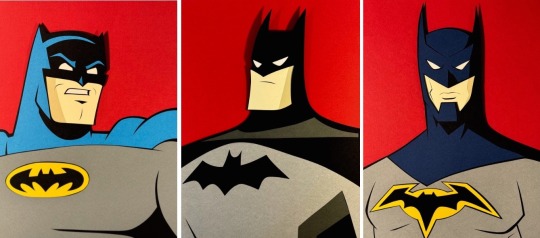
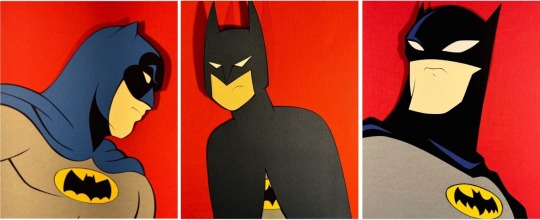
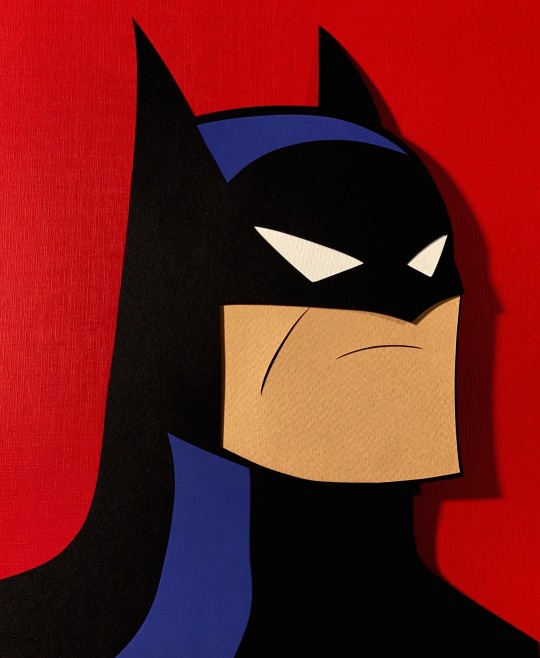
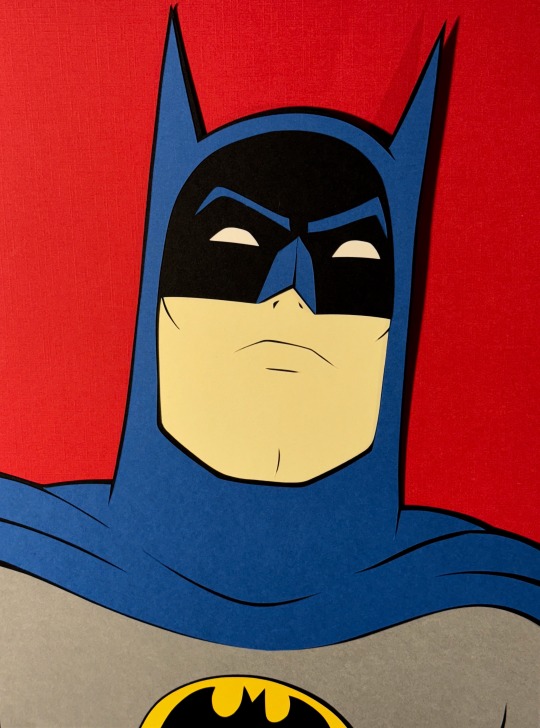
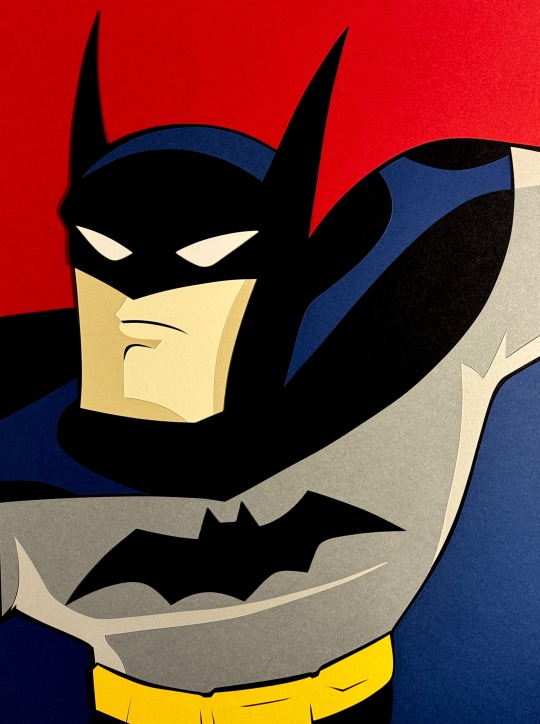
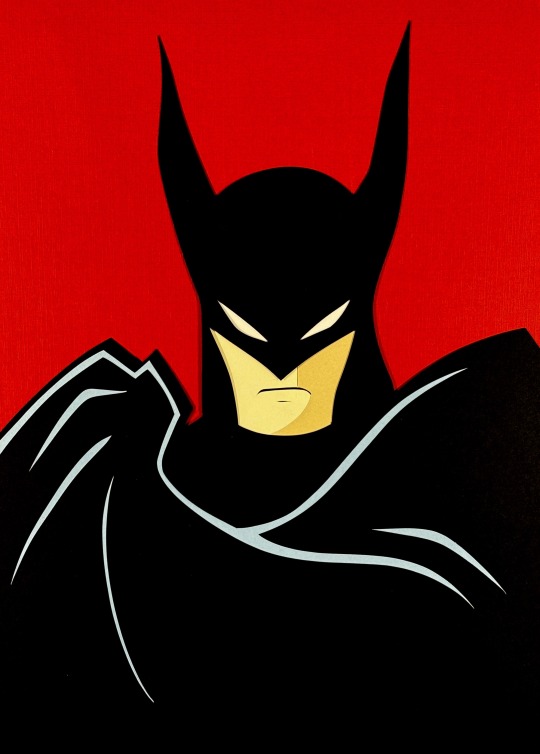
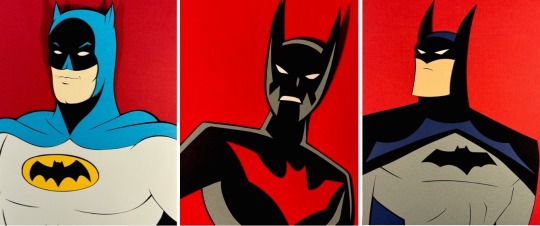
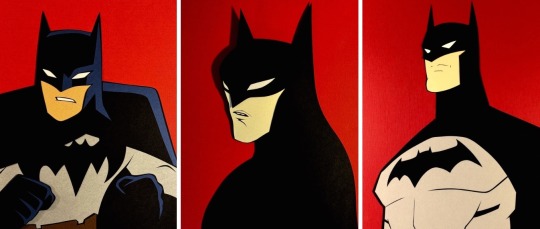
Batman: The Animated Series - Paper Cut-Out Portraits and Profiles
Happy Birthday Batman
An official DC Comics calendar published for 1976 identified February 19th as Bruce Wayne’s birthday. Other dates have been mentioned in the comics as possibly being the Batman’s birthday yet the nineteenth of February still seems the most canonically recognized. Really, a Pisces?
In any case, to celebrate the Dark Knight’s birthday here are paper cut-outs of Batman in all his various animated forms. Who knew there were so many?
The Adventures Of Batman was the first Batman cartoon series and ran from 1968 to 1969. It stared Olan Soule in the role of Batman with a young Casey Kasem in the role of Robin.
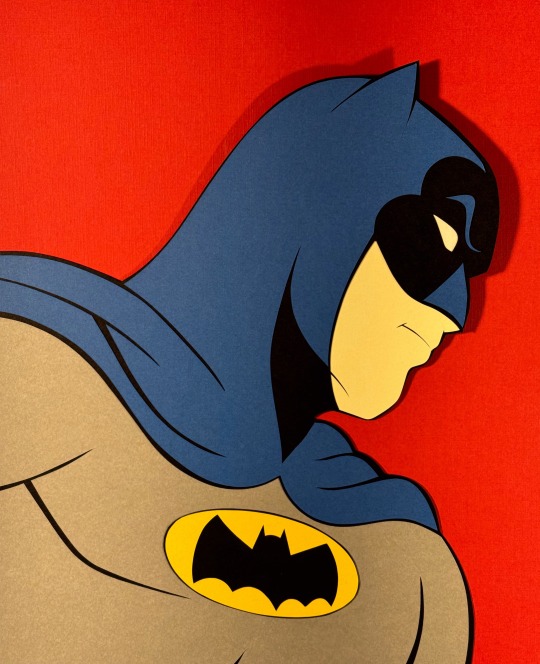
The SuperFriends brought Batman together with the world’s greatest heroes and ran from 1973 all the way to 1986. Soul and Kasem both reprised their roles as Batman and Robin in the series.

The New Adventures of Batman ran for a single season in 1977 featuring Adam West as Batman and Burt Ward as Robin. This was a particularly silly show and featured a great deal of a magical imp known as Bat-Mite.
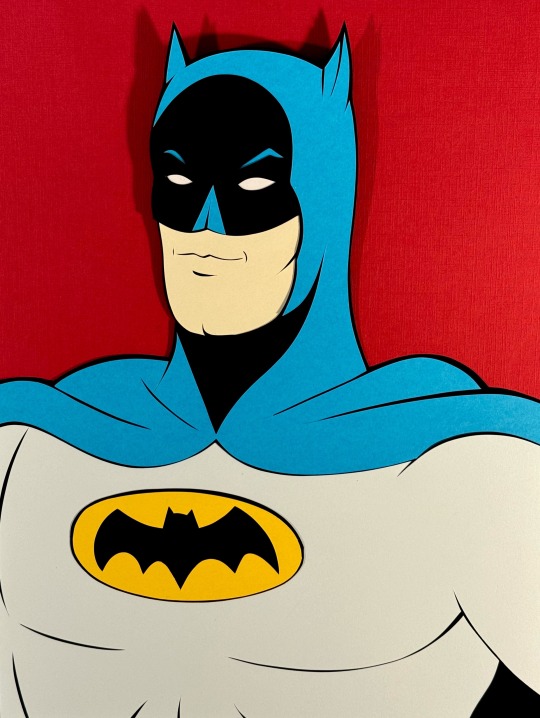
1992 saw the advent of the greatest cartoon of all time as Batman: The Animated Series debuted and ran through to 1995. The great Kevin Conroy provided the voice for Batman.

The New Batman Adventures was a continuation of Batman: The Animated Series with some updated stylistic changes. It ran from 1997 to 1999, featuring Conroy as Batman.
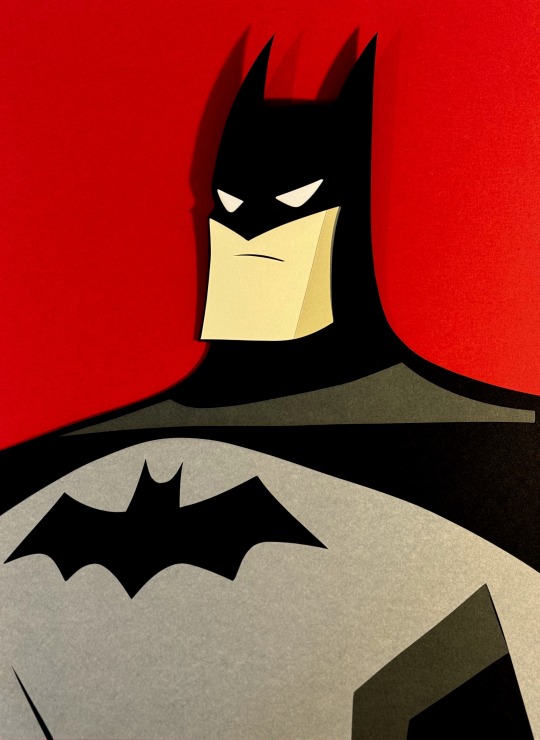
Batman Beyond entailed a Gotham City of the future where an aged Bruce Wayne trains a young man on his path to filling the mantle of The Batman. It ran from 1999 to 2001 and stared Kevin Conroy as Bruce Wayne and Will Friedle as his protégé, Terry McGinnis.
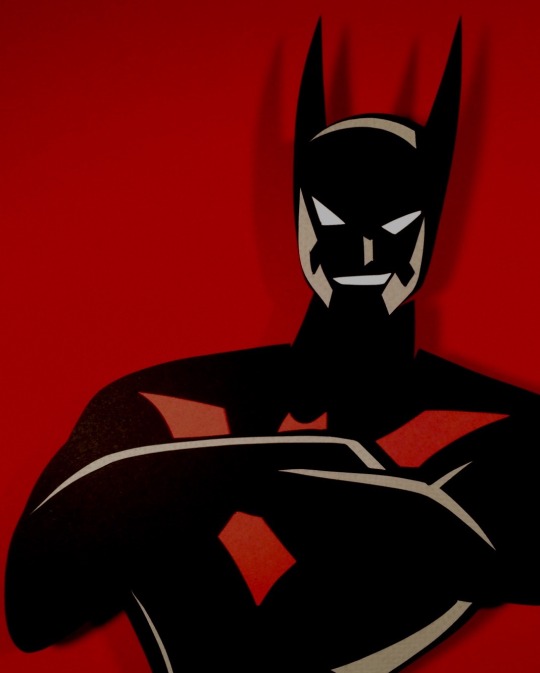
Justice League brought the Superfriends back together this time under the banner of The Justice League (and later Justice League Unlimited). It ran from 2001 to 2006 and once more featured Kevin Conroy in the role of Batman.

The Batman, which ran from 2004 to 2008, departed from the continuity established in Batman: The Animated Series and presented a new version of the Caped Crusader and his various allies and adversaries. It starred Rino Romano in the role of Batman with Evan Sabara and Danielle Judovits as Robin and Batgirl.
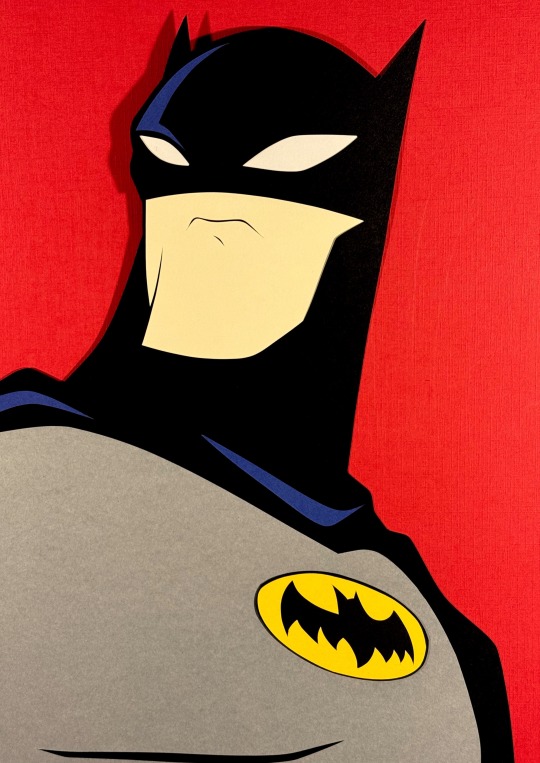
Echoing the campiness of 1966, Batman: The Brave and The Bold was a fun, light-hearted anthology series that ran from 2004 to 2008. Each episode saw Batman teaming up with different heroes of the DC Universe for madcap adventures. Diedrich Bader stared as Batman.
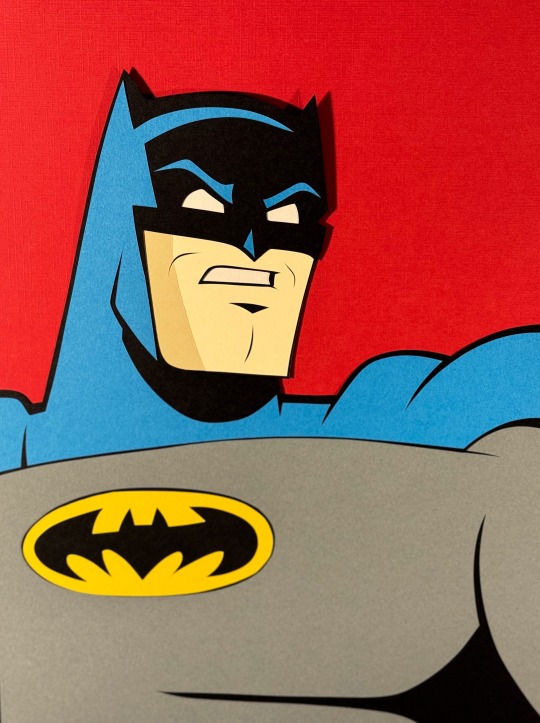
The series Young Justice, which ran non-concurrently from 2010 to 2022, focused primarily on Robin and the other younger heroes as they made their way from being sidekicks to a team in the own right. Batman featured in many of the episodes where he was voiced by Bruce Greenwood.
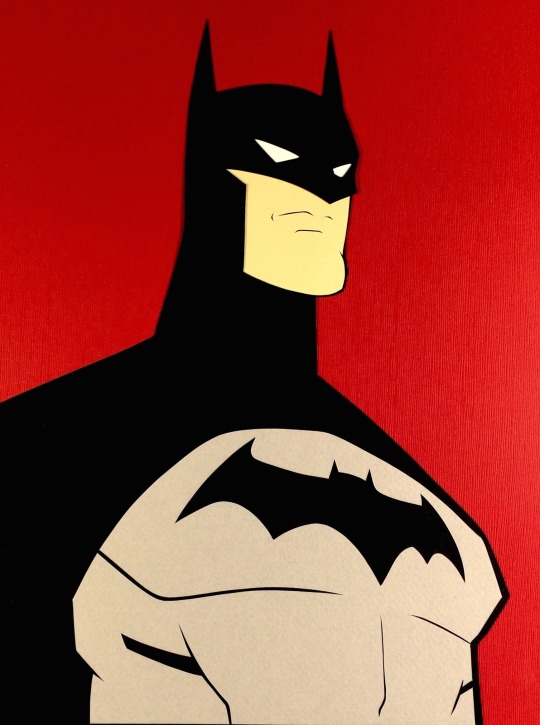
Beware the Batman from for a single season in 2013. Anthony Ruivivar voiced Batman in this dark, largely computer animated series.
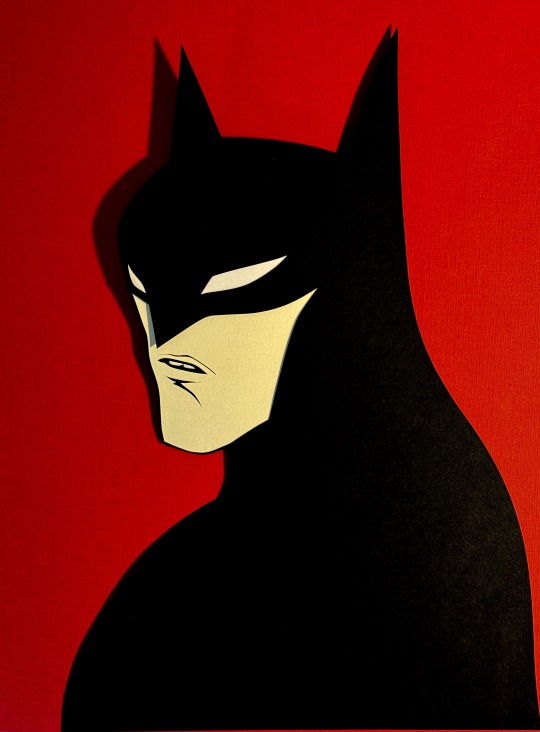
Batman Unlimited ran from 2015 to 2016. This was primarily a commercial in animated form featuring short, action-packed stories in tandem with the release of action figures and toy vehicles. Roger Craig Smith provided the voice for Batman.
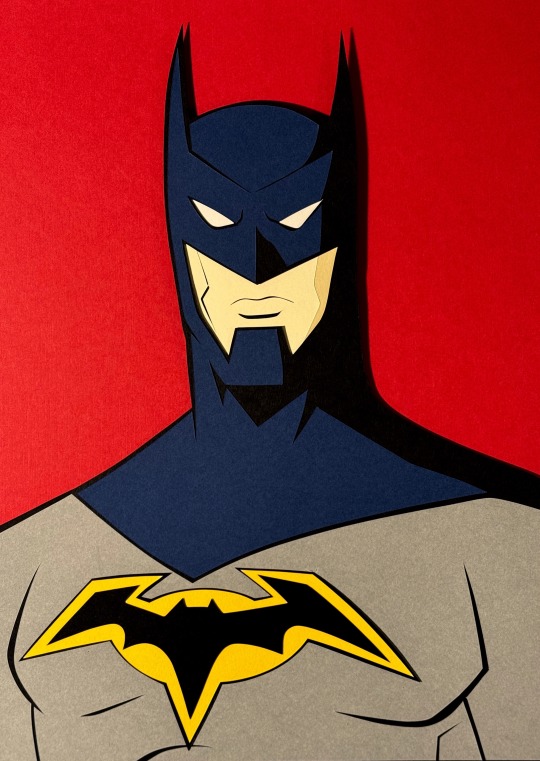
Justice League Action brought back the League for more light-hearted adventures with a star-studded cast. It ran from 2016 to 2018 with Kevin Conroy returning to once again voice Batman.
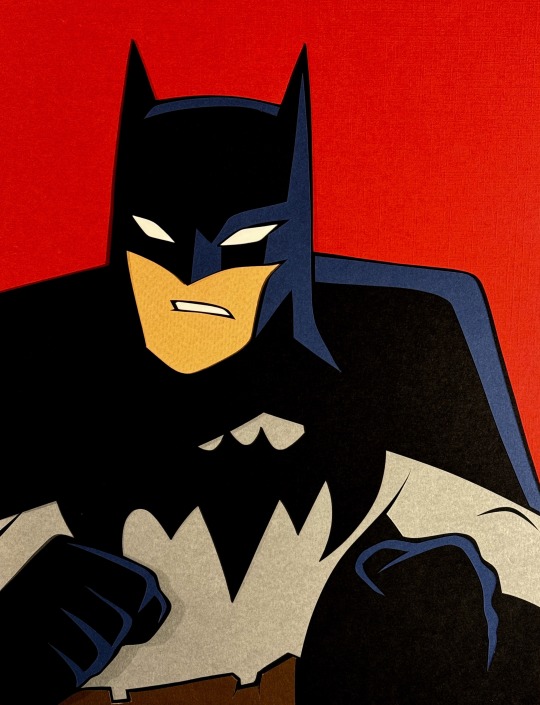
Batman appeared as a periodic guest star in the DC Super Hero Girls series, which ran from 2019 to 2022. Herein Batman spoke in a barely audible growl that only the other characters could comprehend. Whereas actor Keith Ferguson provided the voice for Bruce Wayne, who further hid his secret identity as the the Caped Crusader by featuring in the ridiculous reality TV show, ‘Making it Wayne.’
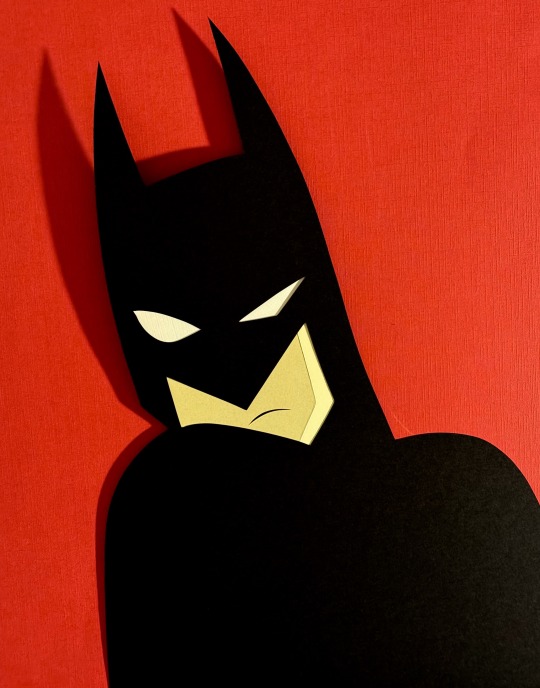
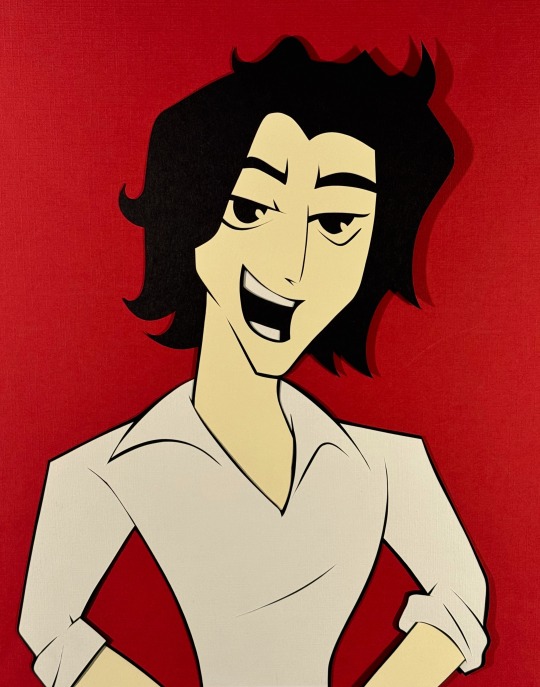
A lampooned version of the Dark Knight sporadically features in the zany Harley Quinn animated series, premiering in 2019. Diedrich Bader reprises his role from Batman: The Brave and The Bold, voicing this decidedly goofier version of the Dark Knight.
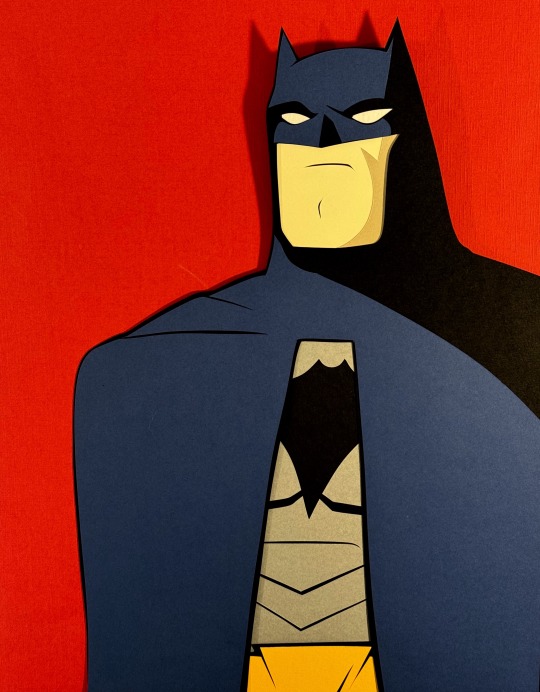
And finally, hopefully debuting some time soon, Batman: The Caped Crusader acts as a spiritual successor to Batman: The Animated Series and features the final acting role of the late, great Kevin Conroy, reprising Batman one last time.

125 notes
·
View notes
Text
pictures below the cut!




21 notes
·
View notes
Text


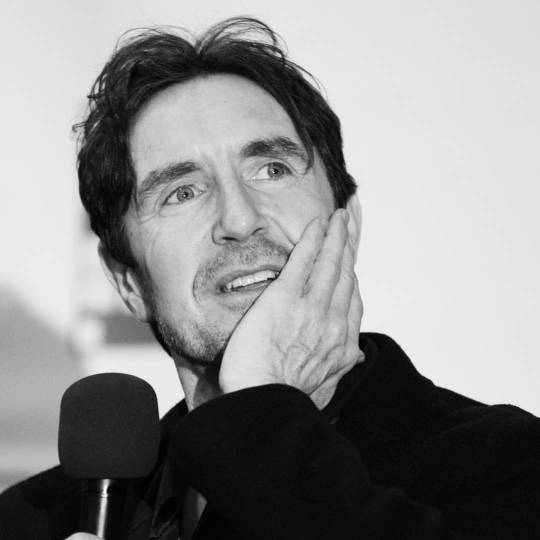
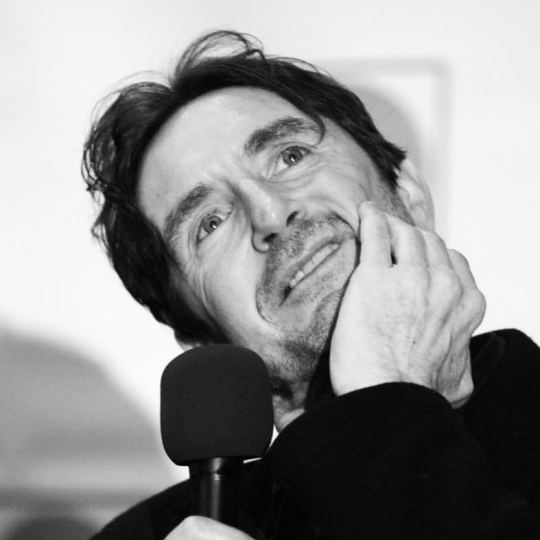

Advent Calendar Door 16: Some gorgeous photos from Long Island Who in 2016 by Cat Cranston.
21 notes
·
View notes
Text
HD longer fics recs : 70k to 80k words
Here are a few recs for fics ranging between 70k and 80k words.
You can see my recs for fics that have more than 200k here, between 150k and 200k here, between 125k and 150k here, between 100k and 125k here and between 90k and 100k here.
Breathe Me by @kedavranox [73k]
Since the singular incident of being a Horcrux for many years has left Harry with a sensitivity to Dark magic, Harry begins training with Jacob, a Wizard who lives in New York, using this sensitivity to his advantage to cleanse magical spaces of Dark magic. After a year of training, Draco Malfoy shows up, wanting to learn from Jacob as well, and unexpectedly the two men grow a bond, both magical and physical. But Jacob’s sudden death leaves Harry floundering and growing increasingly dependent on drugs and sex to avoid his problems. After his brief and tumultuous affair with Draco ends, Harry begins a life of travel, avoiding returning home permanently and continuing his drug habit. He flits from job to job, from place to place, never settling down for a moment, until, years later, Harry is called back to England by his friends to help Draco find his way out of a cursed Manor.
Choices of the Heart by Naadi [78k]
Immediately after defeating Voldemort, Harry begins to have strange dreams, dreams that pull him once more into the realm of the newly dead. At first, the dreams are only a curious mystery, and Harry sets about putting his life back in order after the war. But when Harry dreams of Narcissa Malfoy, his life suddenly goes in a much different direction than the one he’d always imagined.
The Claiming of Grimmauld Place by @bixgirl1 [74k]
When Grimmauld Place begins fighting against Harry’s ownership of it, he decides he needs help to train the historic home — but little does he expect that it’ll be Malfoy who’s most suitable for the challenge. However, as Malfoy and Harry get closer, Harry comes to understand that expectations aren’t always the best path by which to guide his heart — and in the process learns just what is needed to make a house a home.
Crown Witness by @slytherco [70k]
After the war, wizarding society is oppressed by a new kind of plague—an organised crime group calling itself the Family. When Harry Potter goes to interrogate a potential witness, he doesn’t expect to end up on the run again, trying to keep Draco Malfoy alive, while a manhunt follows in their footsteps, adamant on eliminating the one witness that could ruin everything. In which Harry and Draco learn that the way to each other might just have to go through the dingiest hotels in Britain.
Faerie Felicities by @quackquackcey [79k]
Draco dies and wakes up to the emerald drapes of the Slytherin dormitory at the end of 5th year. Thus ensues new possibilities, new choices, a new life, and a new romance(?) Featuring fluffy shenanigans, lots of baking, and a hopefully not-so-bad war (fingers crossed). Or in other words, a somewhat Christmassy canon rewrite fic.
From the Sea by wantsunicorns [78k]
Scorpius Malfoy has never been one to leave stones unturned in his quest for adventure, and he’s not about to start when it comes to finding a cure for his father’s mysterious illness. Albus Potter has his work cut out for him, making sure Scorpius doesn’t get himself killed or drive Albus around the bend. – A tale of adventure and civilisations long forgotten, where not everything is quite as is seems.
Headlights in the Snow by Saras_Girl [71k]
What’s big and purple and smells like tea? Harry is about to find out. Advent fic 2016.
Heartlines by @shiftylinguini [72k]
Harry never expected he’d end up chipping away at his virginity while wandless and bonded to Malfoy in Northern Europe. He never expected that would turn out to be the least surprising thing to happen while out on their training expedition in the middle of nowhere, either.
Kept in Cages by @sweet-s0rr0w [76k]
Deep in the heart of the Ministry lies the Beast Division: a hidden room where ancient beasts roam, and winged creatures soar, and grumpy giant ferrets eat all your biscuits unless you keep them well hidden. Draco Malfoy would know – he’s been working there for five years now, after all. Meanwhile, on Level One, ex-Golden Boy Harry Potter is stuck in another interminable policy meeting, completely unaware of the mysterious comings and goings just three floors below. But when a giant snake emergency requires the assistance of a Parselmouth, Harry finds himself thrust, unprepared, into Draco’s weird and wonderful world – and naturally, he can’t keep away…
Manticoria by @lol-zeitgeistic [70k]
In the dangerous days after Voldemort’s fall, Harry struggles to find a way to be with Draco—again. But as the magical world threatens to die all around them, it might be more difficult than he thought. Includes dying wards, dying beasts, and love struggling to live; sentient magic, wandlore, Founder lore, potion lore, and ward lore; and of course there is Zacharias Smith to ruin everything, as usual.
Monster by shushu_yaoi_lj / @orange-peony [71k]
“Hmm,” Hermione hums, tapping her index finger against her bottom lip and then smiling at Harry. “A broken music box, you say…” “A cursed one,” Harry corrects her. “Well, it’s still a music box that is not working properly,” Hermione points out with a very intent grin. “That will give you a chance to see him.” She wiggles her eyebrows, making him snort. As if Harry hadn’t thought about it straight away. As if Harry’s mind hadn’t immediately wandered to Draco Malfoy the moment Zabini mentioned a music box.
Now My Neck Is Open Wide (begging for a fist around it) by LadySlytherin [75k]
Six months post-war, Harry meets Grayson Wenke, a famous Quidditch player. Harry believes he’s found the love of his life, and a Happily Ever After ending suitable for the storybooks. When Grayson slowly goes from Prince Charming to a monster behind closed doors, Harry finds himself trapped, and alone, and fearing for his life. When Harry realizes he’s pregnant, the opportunity for escape - and a real Happily Ever After - presents itself as none other than Draco Malfoy. The only question is if Harry is brave enough to take a chance, and strong enough to heal.
Right Hand Red by @lqtraintracks [73k]
Harry felt Malfoy’s breath on his lips as they came together over the bottle, hands firmly planted on the floor as though they each needed their familiar soil, refusing to cross into enemy territory. Except that Malfoy no longer felt like his enemy. Malfoy felt inevitable.
Tea and No Sympathy by who_la_hoop [70k]
It’s Potter’s fault, of course, that Draco finds himself trapped in the same twenty-four-hour period, repeating itself over and over again. It’s been nearly a year since the unpleasant business at Hogwarts, and Draco’s getting on with his life quite nicely, thank you, until Harry sodding Potter steps in and ruins it all, just like always. At first, though, the time loop seems liberating. For the first time in his life, he can do anything, say anything, be anything, without consequence. But the more Draco repeats the day, the more he realises the uncomfortable truth: he’s falling head over heels for the speccy git. And suddenly, the time loop feels like a trap. For how can he ever get Harry to love him back when time is, quite literally, against him?
Teach Me, Life; Guide Me, Love by Kira OHara [79k]
Revelations both painful and joyous set the markers in the path of every life. Thankfully, Draco has spectacular company for the journey.
That Old Black Magic by @bixgirl1 [77k]
Centuries ago, marriage contracts were the norm — ready-made alliances between families, expected and complied with, without complaint. But norms have a way of changing, and when a long-dormant contract flares to life, Harry has to navigate an unexpected splintering of the path he’d thought would be easy after the war… with Draco Malfoy.
I hope you enjoy these stories as much as I did!
46 notes
·
View notes
Text
“Simply put, America can't be the way it once was. As we'll see throughout these pages, changes in the country's sexual, religious, technological, demographic, and economic fabric make that impossible. And these upheavals have further reshaped our politics, education, and laws. Traditionally, nations depend on the continuity of generations to transmit memories and beliefs across time and thus sustain their identity. At least for the United States, that pattern is now smashed. Discontinuity, more and more, drives today's American life.
Popular wisdom tends to locate the seeds of today's social conflicts in America's "cultural revolution" of the 1960s. Those of us who are old enough tend to remember the sixties through the lens of the Vietnam War. And for good reason. Other wars had been unpopular, but Vietnam was the first big setback to America's national confidence, to our sense of being the "good guys" in an American century.
The war opened the first deep cracks in how Catholics understood their patriotism. The brothers Daniel and Philip Berrigan, both of them priests, were among the many American Catholics who saw the war as immoral and who publicly protested it.
Vietnam was also the first war covered nonstop by global media. And the young men who fought in it served in a republican army, a citizen army used for ambiguous ends that critics claimed were imperial. The war's conscript nature democratized the anger against it. And that anger of the young bled easily into other deep shifts taking place in the nation's life fueled by postwar wealth, global security commitments, the Cold War, scientific advances, and the struggle for racial justice.
Little things, too, can have big consequences. The transistor, perfected in 1947 and hitting the popular market in the mid-1950s, transformed the field of electronics and made modern computers possible-and indirectly, all that a computer-driven society implies. A similar "little" thing was the advent of the birth control pill for public use in 1960. Looking back from the vantage point of 2016, we can see that the pill is a monument to unintended consequences. It was benign-seeming because its creators intended it to strengthen marriages by giving couples the power to space their children. But it was radical in its effect because in decoupling sexual intimacy from procreation, it sparked much deeper changes in American social attitudes and behaviors than anyone foresaw.
Feminist scholars were hardly the first to notice that sex has implications that go well beyond making babies. Sex defines and breaks relationships and personal identities. It can be a cultural glue or a powerful destabilizer. This is one of the reasons traditional societies have always surrounded sex with rigorous sacred rituals and protections.
…
Of course, young adult sex as a leisure activity is hardly stunning news. And we'd be unwise to ignore today's unique circumstances that help drive it. In an intensely individualistic culture, absent a convincing moral purpose for their sexuality, many use sex in a callous and predatory way. For others, though, it can express a misplaced need for some form of deeper communion with another person and an antidote to loneliness they don't fully understand.
Whatever the motives, this puts young people at high risk of sexually transmitted diseases, now a national epidemic. It also creates the risk of unplanned pregnancy and the heavy social pressure to abort that always follows. The best moral convictions in the kindest heart can unravel in the face of a life-changing choice such as bearing an unplanned child, alone and unmarried.
All of which underscores a simple fact: The surest way to transform a culture is from the inside out. And the surest path to doing it isn't through reasoned debate (too tedious) or violence (too costly) but by colonizing and reshaping the culture's appetites and behaviors.”
-Archbishop Charles J. Chaput, Strangers in a Strange Land: Living the Catholic Faith in a Post-Christian World
#Catholic#politics#traditionalism#modernism#Vietnam War#Archbishop Charles Chaput#Quotes#History#America
9 notes
·
View notes